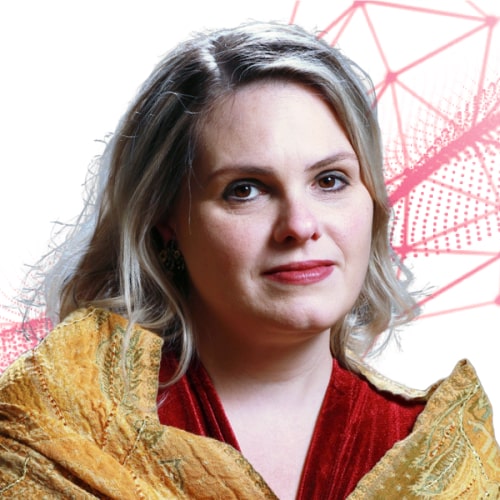CEO and Founder, The Metaverse Institute
Biography:
Christina is a pioneer in the metaverse. She started her master’s research on the topic in 2006 using metaverse to develop international strategies for universities. In 2012, she completed a PhD in using digital twin services in the metaverse to simulate projects in the AEC industry. She is the CEO of The Metaverse Institute, which is made up of a group of pioneers in the Metaverse, AI, digital twin, Smart Cities assisting organizations using related technology to improve the real world.
Christina is an award-winning business leader with 16 years of experience turning forward-thinking ideas into ultra-high growth businesses with global impact. She has extensive experience working with government ministers, university presidents, and business CEOs on industry, innovation, and skills strategies. She worked for QS, the leading world university rankings agency, between 2013 and 2020, leading China business. Starting from scratch, Christina grew the UK-headquartered firm’s profile and commercial success in China. In 2016, China’s Vice Premier highlighted the use of QS rankings in a keynote speech, with the rankings impacting 5 years of funding allocations to 3005 universities with 48 million students, and a budget of £750bn.
Christina was the first Chinese elected to the national executive of the UK National Union of Students (NUS) since 1922, and represented the interests of one million international students studying at 600 UK higher and further education institutions. Christina also contributed to the establishment of the Commonwealth Students Association, representing 2 billion youth across 54 countries. She has sat on 20+ advisory committees for UNESCO, the World Bank, the Commonwealth, the EU, and UK Governments, and led many successful lobbying efforts with government leaders, including 4 UK Prime Ministers and many heads of state in Africa, Asia, the Commonwealth, and Europe.
She has visited and evaluated hundreds of the world’s top universities, national labs, and hospitals, and advised their presidents on strategies to develop world-class innovation systems. Between 2012 and 2013, she worked in the UK Parliament developing policy for the Shadow Business Secretary’s team.
As a bridge-builder between the government, business, education, and innovation sector, she regularly meets with top leaders, is a frequent keynote speaker at high-level events, and is interviewed by top media.
Presentation title:
Generative AI for the Metaverse- Hype, Hope or Hell?
Presentation abstract:
“We are living the generative AI hype, with everyone getting crazy about ChatGPT. And every day I read articles about how AI can disrupt the metaverse, how ChatGPT and metaverse are the perfect match, and especially about how the fact that if your organisation doesn’t have an AI strategy, it is already old and ready to be eliminated. It sounds familiar right? In 2021, everyone is saying the same thing about the Metaverse. Should you now use generative AI in your metaverse development or not?
On 22 March 2023, Microsoft researchers released a paper titled “Sparks of Artificial General Intelligence: Early experiments with GPT-4.” They claim that, GPT-4 can solve novel and difficult tasks that span mathematics, coding, vision, medicine, law, psychology, showing early signs of general intelligence, meaning that it has capabilities to exceed human intelligence.
This eyebrow-raising conclusion largely contrasts what OpenAI CEO Sam Altman has been saying regarding GPT-4 who considered the model was “”still flawed, still limited.””
In the same week, Microsoft announced a new AI-powered Copilot for its Microsoft 365 services, designed to assist people with generating documents, emails, presentations, and much more.
How could we develop the future metaverse and human society in the age of singularity when the intelligence of machine exceeds human?”










